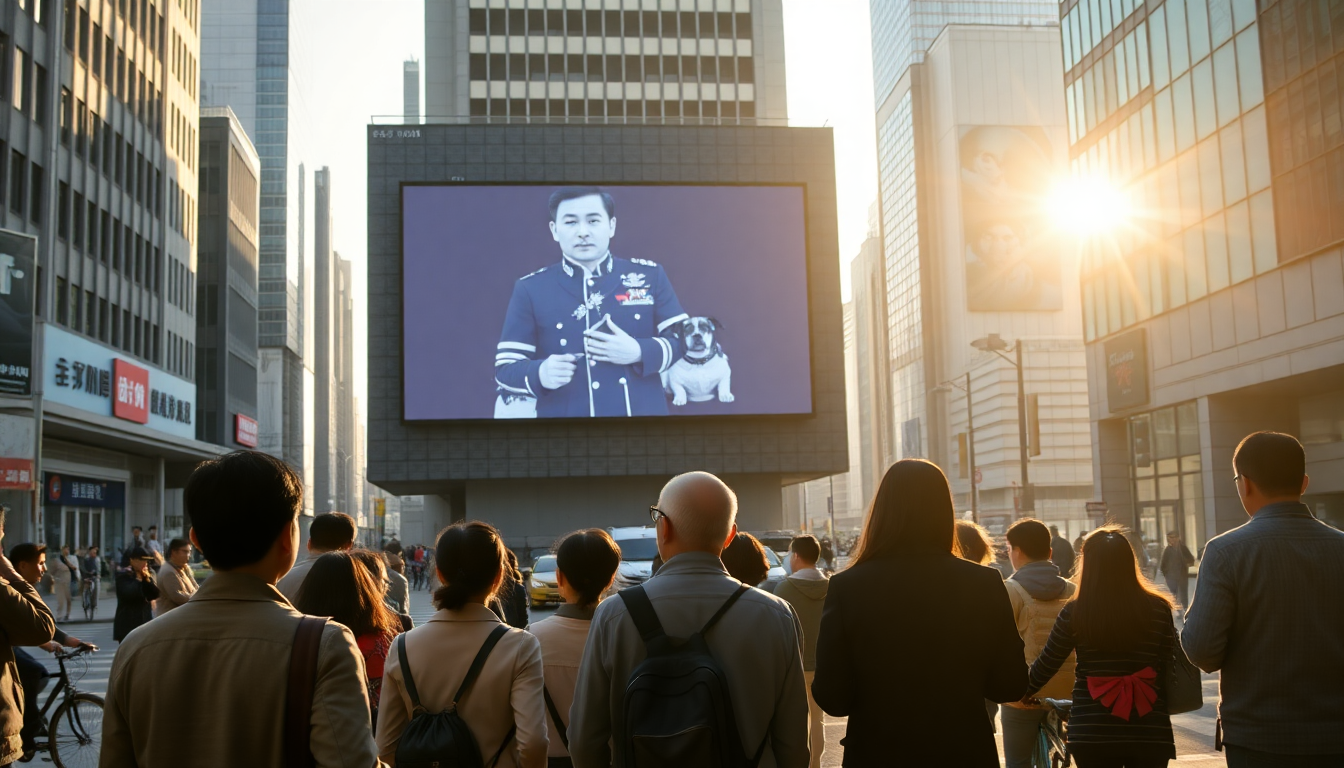Table of Contents
In today’s digital world, images and videos can dramatically sway public opinion and influence international relations. Recently, a wave of provocative videos has surfaced on Chinese social media, portraying Japan’s wartime Emperor Hirohito in some pretty controversial ways—think uniformed schoolgirl and even a dog.
These depictions have triggered intense backlash and raised eyebrows about their potential effects on Japan-China relations, highlighting the tricky balance in how history is portrayed in contemporary media.
The Rise of Controversial Media Content
The timing of these videos is particularly noteworthy, coming just before a military parade on September 3rd that marks the 80th anniversary of Japan’s surrender in World War II.
As social media becomes a battleground for historical narratives, Hirohito’s portrayal has sparked outrage among many in Japan. Not only do these videos trivialize a complex historical figure, but they also reflect the simmering tensions that continue to exist between China and Japan.
One clip that stands out features the former emperor depicted as a schoolgirl, while another shows him as a dog, paired with a caption referencing General Douglas MacArthur, who oversaw the Allied occupation of Japan after the war. This kind of irreverent juxtaposition of wartime figures has drawn sharp criticism from Japanese officials.
Official Responses and Diplomatic Fallout
Following the video’s release, Yoshimasa Hayashi, Japan’s Chief Cabinet Secretary, condemned the clips as “inappropriate.” He stressed that these portrayals could have serious repercussions for Japan-China relations, prompting diplomatic efforts to have the videos removed from Chinese social media platforms.
Hayashi’s comments underscore the sensitivity surrounding how history is represented and the potential to escalate existing geopolitical tensions.
On the flip side, a spokesperson for the Chinese foreign ministry mentioned they were still looking into the matter, indicating a cautious approach to the controversy.
This response shows an awareness of the fragile nature of historical narratives, especially those involving key wartime figures that resonate deeply in the collective memories of both nations.
Implications for Historical Discourse and Media Ethics
This incident raises important questions about the media’s role in shaping how we understand history. In a time when information spreads rapidly—often without much context—mocking or trivializing portrayals of historical figures can lead to misunderstandings and increased tensions. This is especially relevant for Japan and China, where historical grievances are still a touchy subject.
Moreover, the backlash against such content could push digital platforms to reconsider how they handle and regulate provocative media. As societal norms shift, there’s a growing need for a deeper understanding of the impact historical representations can have in our interconnected digital landscape.
Ultimately, the recent uproar is a powerful reminder of how media can shape perceptions and narratives. It highlights the importance of treating historical subjects with the seriousness they deserve, particularly on platforms where the line between satire and insensitivity can be worryingly thin.





